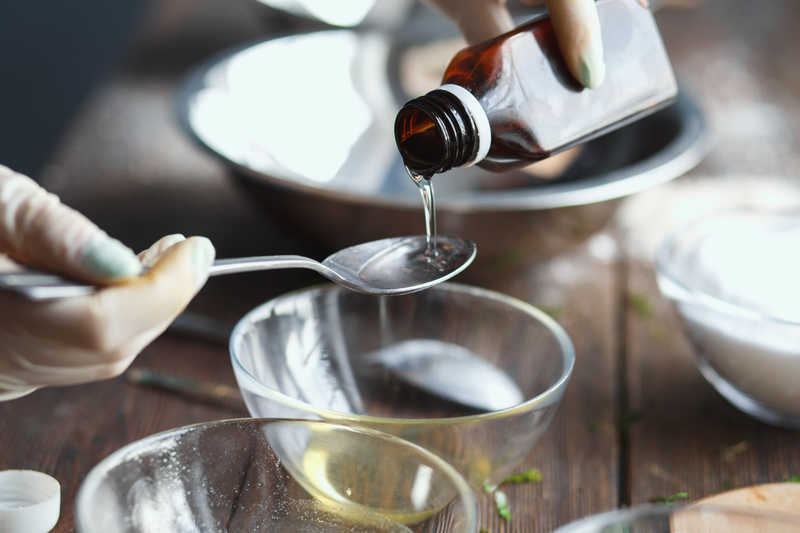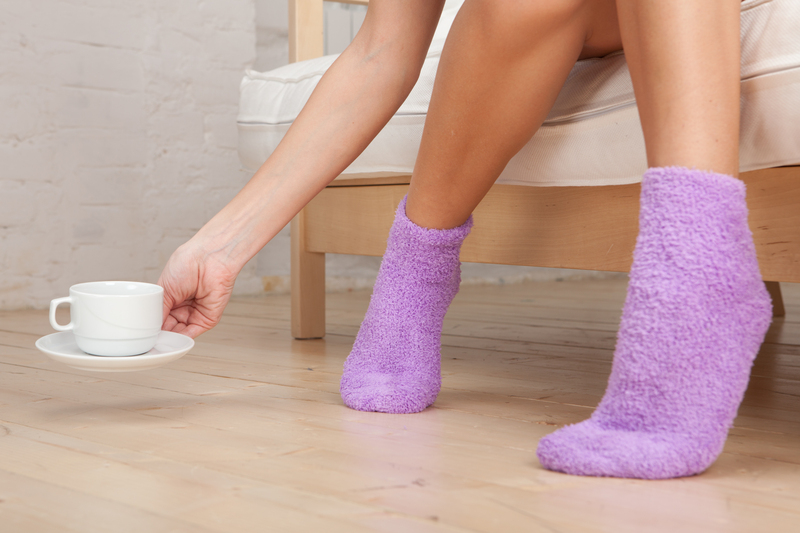Jewellery Cleaning: Transforming Dull to Dazzling
Posted on 07/09/2025
Jewellery Cleaning: Transforming Dull to Dazzling
Rediscover the lost sparkle of your precious gems and metals--learn how professional and DIY jewellery cleaning can transform dull, tarnished pieces into dazzling showstoppers. With our comprehensive guide, explore cleaning techniques, maintenance secrets, and expert tips to keep your ornaments shining bright for years to come.
Why Jewellery Cleaning is Essential
Your jewellery is more than just adornment-it's an expression of your personality, memories, and milestones. Over time, however, even the most radiant pieces can lose their shine due to exposure to dust, sweat, oils, and everyday pollutants. Regular jewellery cleaning is crucial to restore brilliance, prevent damage, and extend the life of your treasures.
Benefits of Regular Jewellery Care
- Restores sparkle and shine to gemstones and metals.
- Prevents buildup of dirt, oils, and lotion residue.
- Avoids tarnish on silver and oxidation on other metals.
- Detects wear and tear early, preventing costly repairs.
- Preserves sentimental and monetary value of your pieces.

What Causes Jewellery to Lose Its Shine?
Various factors can rob your jewellery of its original brilliance:
- Excessive skin contact: Natural oils and sweat can leave residues.
- Cosmetics and perfumes: Chemicals can dull metals and cloud gemstones.
- Environmental pollution: Dust and pollutants settle on the surface.
- Improper storage: Jewels may scratch each other or tarnish in moist environments.
- Water exposure: Chlorinated or salty water can corrode and damage metalwork.
Understanding these factors highlights the importance of regular jewellery maintenance and proper storage.
Top Methods for Jewellery Cleaning at Home
You don't have to rely solely on professionals--safe and effective jewellery cleaning at home is possible! Here's how to bring back the dazzle to your favourite pieces:
1. Soap and Water Cleaning
The most gentle cleaning method involves simply using mild dish soap and warm water:
- Mix a few drops of mild dishwashing liquid in a bowl of lukewarm water.
- Soak your jewellery for 15-20 minutes.
- Use a soft-bristled toothbrush to gently scrub.
- Rinse thoroughly under cool running water.
- Pat dry with a lint-free cloth.
This method is ideal for gold, platinum, diamond, and most hard gemstones.
2. Baking Soda and Vinegar Solution
For silver pieces that have tarnished, a mix of baking soda and vinegar works wonders:
- Place silver jewellery in a bowl.
- Sprinkle with baking soda.
- Pour white vinegar over the pieces to create a fizzing action.
- Let it sit for a few minutes, then rinse and dry thoroughly.
Note: Do not use this method for jewellery with pearls, opals, or other porous gems.
3. Aluminium Foil and Baking Soda Bath
Another tried-and-true method for silver jewellery cleaning is the aluminium foil trick:
- Line a bowl with aluminium foil, shiny side up.
- Pour in hot water and add a tablespoon of baking soda.
- Place your jewellery in the solution so it contacts the foil.
- Wait a few minutes, as the tarnish transfers from the silver to the foil.
- Rinse and dry thoroughly.
4. Commercial Jewellery Cleaners
Specialized cleaning solutions formulated for specific metals and gems are widely available. Always follow the manufacturer's instructions and perform a spot test for delicate pieces.
5. Ultrasonic Cleaners
Home ultrasonic jewellery cleaning devices use sound waves to loosen dirt from intricate crevices. These are best for solid metal and diamond jewellery, but avoid use with softer or treated stones such as emeralds or pearls.
Jewellery Cleaning: What to Avoid
- Avoid harsh chemicals: Bleach, ammonia, and acetone can damage most jewellery.
- Never use toothpaste: Its abrasiveness can scratch metals and gems.
- Be careful with hot water: Sudden temperature changes may fracture fragile stones.
- Don't soak glued pieces: Water may weaken or dissolve adhesives.
When in doubt, always consult a professional for the safest approach to jewellery restoration.
Cleaning Different Types of Jewellery
Every jewellery type necessitates unique cleaning techniques to maintain its lustre and structural integrity. Here's how to treat various precious materials:
Gold Jewellery
- Use the soap and water method for daily cleaning.
- Avoid abrasive cleaners and rough cloths.
- Store separately to avoid scratches.
Silver Jewellery
- Polish with a silver cloth or use baking soda solutions to remove tarnish.
- Store in anti-tarnish bags.
Diamond Jewellery
- Gentle soap and water is safest.
- Brush gently around the stone setting to avoid loosening.
Pearl, Opal, and Other Soft Gemstones
- Do not soak--use a barely damp cloth to wipe.
- Avoid ultrasonic and chemical cleaners.
- Store away from heat and sunlight.
Platinum and White Gold
- Clean with soap and water, using a soft cloth.
- Have professionally polished if scratches appear.
Costume Jewellery
- Wipe with a dry, soft cloth.
- Don't immerse in water--moisture can damage adhesives and finishes.
Professional Jewellery Cleaning: When and Why?
While at-home maintenance works well for most pieces, some situations call for the expert touch. Professional jewellery cleaners use advanced ultrasonic machines, steamers, and polishing equipment for deep cleaning and damage inspection.
- For heirlooms or high-value items: Routine expert cleaning prevents irreversible damage.
- Delicate, intricate, or antique pieces: Professionals can safely clean and repair intricate or fragile designs.
- If gemstones are loose: Only a jeweller should reset or secure loose stones during cleaning.
- Restoration services: For heavily tarnished, scratched, or broken items, professional restoration may include replating, re-polishing, or re-stringing.
Scheduling a professional jewellery cleaning once or twice a year is recommended for most individuals--more often for frequently worn pieces.
Tips for Everyday Jewellery Maintenance
- Remove jewellery when swimming, exercising, or using cleaning agents.
- Apply lotions and perfumes before donning jewellery to minimize residue.
- Store pieces in a lined jewellery box or separate soft pouches.
- Inspect clasps and settings regularly to catch damage early.
- Wipe with a soft cloth after each wear to remove oils and dust.
DIY Jewellery Polishing: Extra Shine at Home
Want your jewellery to turn heads at the next occasion? Try these simple polishing steps:
- Gold: Use a brush, mild soap, and warm water; finish with a jewellery polishing cloth.
- Silver: Use a dedicated silver polishing cloth or cream.
- Gemstone rings: Focus on the sides and underside of settings, where grime accumulates.
- Pearls: Gently buff with a very soft, dry cloth.
Always polish in gentle circular motions and avoid excessive force to protect delicate surfaces.
Jewellery Cleaning Myths and Misconceptions
- Myth: Toothpaste makes a perfect cleaner.
Fact: Toothpaste is abrasive and can scratch metals and stones. - Myth: Soaking all jewellery in water is safe.
Fact: Many gems (pearls, opals) and costume pieces are damaged by water. - Myth: Professional cleaning is only for expensive jewellery.
Fact: All jewellery, regardless of value, can benefit from expert attention.
Choosing the Best Jewellery Cleaner for Your Collection
When selecting a jewellery cleaning solution, always consider:
- Material compatibility: Is it safe for your specific metal and gem?
- Ease of use: Does it require special equipment?
- Residue: Will it leave behind films or odors?
- Reviews: What is the experience of other users?
Avoid one-size-fits-all products unless they specifically state safety for all alloy types and gemstones.
How Often Should You Clean Your Jewellery?
Frequency of cleaning depends on how often you wear your jewellery and its type:
- Daily-wear rings and necklaces: Wipe after each use; deep clean monthly.
- Occasional dress pieces: Clean before and after each event.
- Heirloom and antique jewellery: Professional cleaning annually.
Eco-Friendly Jewellery Cleaning Tips
If you love a more sustainable approach, try eco-friendly jewellery cleaning options:
- Use baking soda and water paste to gently polish silver.
- Vinegar and salt work well for copper.
- Lemon juice diluted with water can brighten brass pieces.
- A dab of olive oil on a cloth gives gold a lovely sheen.
Always spot test natural solutions on hidden areas before full use.

Storing Jewellery to Prevent Future Dullness
Proper storage is the first defense against tarnish, scratches, and grime:
- Store pieces separately to avoid scratching.
- Use anti-tarnish pouches or strips for silver.
- Keep away from humid bathrooms--consider a cool, dry drawer instead.
- Hang necklaces to prevent tangling.
- Place silica gel packets in your jewellery box to reduce moisture.
Conclusion: Make Jewellery Cleaning a Sparkling Habit
Transforming dull jewellery to dazzling doesn't have to be daunting! With regular care, the right cleaning methods, and awareness of each piece's needs, you can effortlessly revive and maintain the beauty of your favourite ornaments. Whether you invest in professional services or embrace DIY techniques, the reward is a radiant collection that captures attention and holds cherished memories for decades.
Start your jewellery cleaning routine today, and watch your treasures return to their original, breathtaking gleam!
Remember:
- Handle with care for timeless sparkle.
- Consult a professional when in doubt.
- Enjoy the confidence and delight that comes with brilliant, well-kept jewellery.
Happy cleaning--and may your jewellery always shine as brilliantly as you do!





